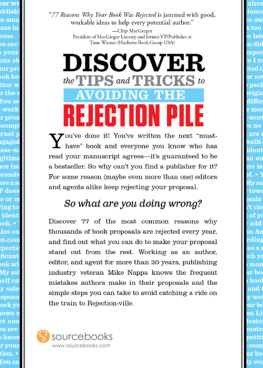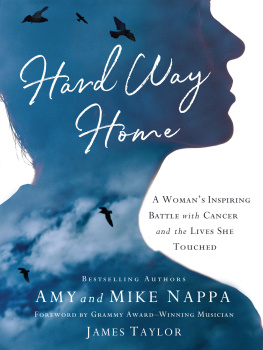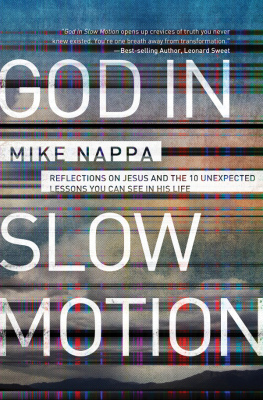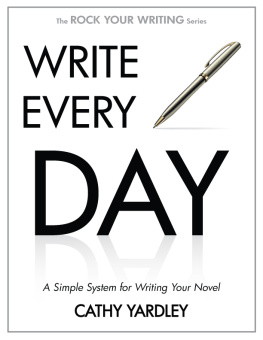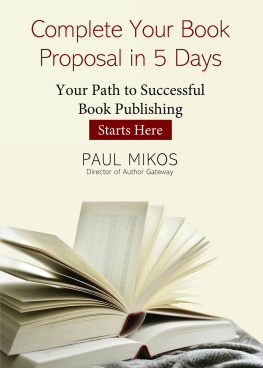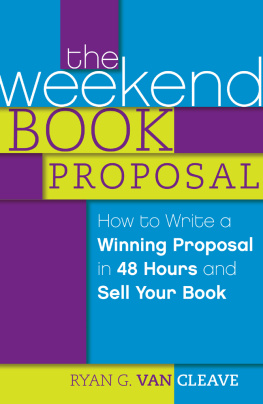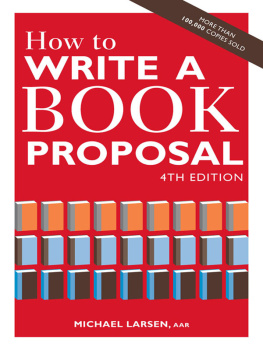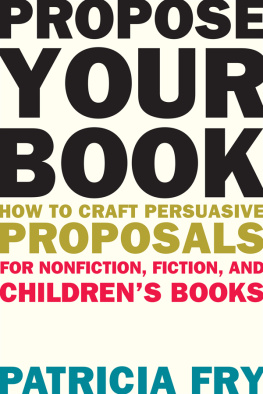
Copyright 2011 by Nappaland Communications Inc.
Cover and internal design 2011 by Sourcebooks, Inc.
Cover design by Michel Vrana
Sourcebooks and the colophon are registered trademarks of Sourcebooks, Inc.
All rights reserved. No part of this book may be reproduced in any form or by any electronic or mechanical means including information storage and retrieval systemsexcept in the case of brief quotations embodied in critical articles or reviewswithout permission in writing from its publisher, Sourcebooks, Inc.
This publication is designed to provide accurate and authoritative information in regard to the subject matter covered. It is sold with the understanding that neither the publisher nor the author is engaged in rendering legal, accounting, or other professional service. If legal advice or other expert assistance is required, the services of a competent professional person should be sought.Adapted from a Declaration of Principles Jointly Adopted by a Committee of the American Bar Association and a Committee of Publishers and Associations
All brand names and product names used in this book are trademarks, registered trademarks, or trade names of their respective holders. Sourcebooks, Inc., Nappaland Communications Inc., and Mike Nappa are not associated with any product or vendor in this book.
Published by Sourcebooks, Inc.
P.O. Box 4410, Naperville, Illinois 60567-4410
(630) 961-3900
Fax: (630) 961-2168
www.sourcebooks.com
Library of Congress Cataloging-in-Publication Data
Nappa, Mike
77 reasons why your book was rejected (and how to be sure it wont happen again!) / Mike Nappa.
p. cm.
Includes bibliographical references.
1. Authorship--Marketing--Handbooks, manuals, etc. 2. Authors and publishers--Handbooks, manuals, etc. 3. Book proposals. I. Title. II. Title: Seventy-seven reasons why your book was rejected (and how to be sure it wont happen again!).
PN161.N37 2011
808.02--dc23
2011017363
Printed and bound in the United States of America.
VP 10 9 8 7 6 5 4 3 2 1
For Jolene Roehlkepartain,
the first editor to ever say yes.
And for Marlene Bagnull,
who first talked me into sharing this
information with writers.
MN
Obstacles dont have to stop you. If you run into a wall, dont turn around and give up. Figure out how to climb it, go through it, or work around it.
Michael Jordan,
in I Cant Accept Not Trying


It Takes Less Than a Minute to Reject Your Book
I make it my goal to reject every book proposal you send me in sixty seconds or less.
This includes book ideas that come in my email box, that are hand-delivered to me at a writers conference, that are recommended by a friend of a friend who knew somebody who told them I was in the publishing business, or whatever. If youve got a book you want to publish, and you send it to me, chances are very good that I will reject your proposal in under a minute.
The sad part about this goal of mine is that its remarkably easy to accomplish. Too easy, in fact. Over the last two-plus decades, Ive worked as an acquisitions editor for three publishers and also as the founder and chief literary agent of Nappaland Literary Agency. I regretfully admit to you now that in that time Ive issued thousands and thousands of those hated rejection letters, in all shapes and forms, to well-meaning and talented writers just like you.
Ive looked an eager author in the eye and said, Im sorry, but Im not interested in publishing your book. Ive sent countless emails, several variations on form letters, and even experimented with that stupid checklist rejection where a dozen reasons for declining are listed on the page and all I have to do is put an X next to my favorite insult for you. (Your book doesnt meet our quality standards, We are not able to project a significant interest for your book, and so on.)
Now, before you label me as some sort of sadist toward the struggling masses of writers out there, you should also know that I am an author myself. In fact, Ive published (as author or co-author) more than forty books, sold more than a million copies of those books, won awards, been translated into various foreign languages, and all kinds of good stuff like that.
What that really means is this:
- In my career, Ive happily received forty-plus acceptance letters or phone calls about my book ideas. (Yay me!)
- At the same time, by my best estimates, Ive also personally received more than 2,000 rejections for my book ideas. (Ouch!)
And yes, Ive had to sit stone-faced while some arrogant jerk of an editor looked me dead in the eye and said, Im sorry, but Im not interested in publishing your book. Ive received countless emails, several variations on form letters, and even some of those stupid checklist rejections where a dozen reasons for declining are listed on the page and all the contemptuous editor had to do was put an X next to her favorite insult for me.
So, you could say that for the past few decades Ive been a successful author, editor, and literary agent. And you could also say during that time Ive successfully failed at being an author, editor, and literary agent.
And thats what this book is about. Learning why we failand then turning that knowledge into success the next time around.
I think Craig Ferguson, host of the Late Late Show on CBS, sums it up best. We prepare for glory, he says, by failing until we dont. That rings true in the life of a professional writer. Still, failure by itself is of no benefit. Its just another disappointing circumstance in life. However, failure with knowledge gainedwell, thats something completely different.
So, with that (and you) in mind, Ive culled more than twenty years of my experience as a publishing industry professional and compiled it for you here, boiled down to 77 Reasons Why Your Book Was Rejected (and how to be sure it wont happen again!). Its my hope that youll find this little tome insightful, helpful, and most of all, something that will give you what you need to get past your last rejection and move on to your rightful place of book publishing glory.
HOW TO USE THIS BOOK
Ill be wearing both my acquisitions editor and literary agent caps while we chat in the pages here. So if I say something like, When you send me your proposal, you can assume that me in that sentence refers to both me-the-generic-acquisitions-editor and me-the-generic-literary-agent. Im making myself your stand-in for those roles. If something is editor-specific or agent-specific, Ill let you know. For instance, if I say something like, When I bring this to my VP of sales, thatll mean Im obviously talking from inside the publishing housewearing the editorial hat. When I mention something like, As I create my pitch list for this book, thats clearly me operating outside the publishing housewearing my agent hat. Generally speaking, this kind of thing should be clear to you as you read, but when in doubt, assume everything applies to both of those people.
Also, as you read this book, you can start at the beginning and work your way to the end (it makes most sense that way). Or you can feel free to skip around and check out the sections that catch your interest first (it works just fine that way, too).
Next page
